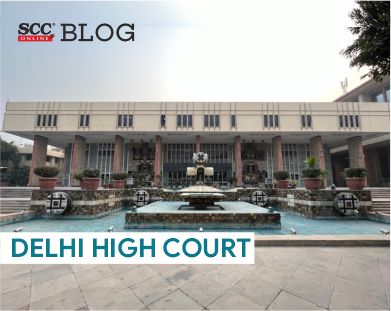Delhi High Court: A Single Judge Bench of Gaurang Kanth, J. upheld the decision of the Labour Court of dismissing the petition filed by a messenger boy for regularisation and absorption in the service in a Bank and held that since the messenger boy had not applied for regularisation and no employer-employee relationship existed between the messenger boy and the Bank, hence, this Court cannot direct the Bank to regularize the services of the messenger boy.
Background
The petitioner was recruited as a messenger-cum-water boy in 1983 at the respondent Bank, where he rendered services his services till 1986 after which his services were terminated by the respondent Bank. In 1987, the respondent Bank entered into a Bipartite Settlement under Section 2(p) read with Section 18(1) of the Industrial Disputes Act, 1987 (ID Act) with the All-India State Bank of India Staff Federation for providing a chance to temporary employees for permanent appointment in the Bank. In 1988, multiple agreements/settlements were made about appointments of eligible temporary employees in subordinate cadres of the Bank. In 1989, the petitioner was re-appointed in respondent Bank’s services at the same branch on the existing vacancy, but his services were terminated again in 1997 by the respondent Bank without assigning any reason.
Submissions on behalf of the Petitioner
It was submitted that the respondent Bank had illegally terminated the petitioner’s services in 1986 and again in 1997. Further, the respondent Bank failed to serve any notice before terminating the service, which was in contravention of Section 25-F of the ID Act. The petitioner stated that he had submitted the application for regularisation since he qualified for the absorption, but he was denied benefits of settlement and the employees with lesser years of service were given permanent employment in the Bank.
Submissions on behalf of the Respondent
It was submitted that no master-servant relationship existed between the respondent Bank and the petitioner since the petitioner was not appointed through a regular recruitment process. In terms of Section 50 of the State Bank of India Act, 1955, the Branch Managers were not the competent authority to appoint a messenger. His appointment since made by a Branch manager, was prima facie irregular and void ab initio. Moreover, absorption and regularisation in the service could be claimed/granted only when the contract of employer-employee relationship subsisted between the parties. Therefore, Section 25-F would not be applicable in the present case. Further, it was submitted that the petitioner never applied to the Bank for his permanent absorption, hence, now cannot be allowed to raise the dispute.
Analysis, Law, and Decision
The Labour Court held that the petitioner failed to prove that he was appointed to the job of Messenger-cum-Water boy through a regular process or that he was entitled to be retained or regularized or that he moved an application for absorption and regularisation in the job in view of the Bipartite Settlement, therefore, was not entitled to regularisation of services.
This Court opined that the regularisation could be done only as per the regularisation policy declared by the Government, and nobody could claim the regularisation as a matter of right de hors the regularisation policy.
The Court noted that the Petitioner failed to place on record any document to show that he applied for permanent absorption under the Bipartite Settlement and since the petitioner never applied for the regularisation under the Bipartite Settlement of the respondent’s Bank, the petitioner was not entitled for regularisation. Therefore, the Court held that there was no infirmity or perversity in the findings of the Labour Court. Further, the Court held that regularisation was not a matter of right and therefore this Court could not direct the respondent Bank to regularize the services of the petitioner. Hence, the Court dismissed the petition.
[Karanvir Singh v. Dy. General Manager, 2022 SCC OnLine Del 4585, decided on 23-12-2022]
Advocates who appeared in this case :
For the Petitioner: Advocate Mahesh Srivastava;
Advocate Vaibhav Manu Srivastava;
For the Respondent: Advocate Rajiv Kapur;
Advocate Tushar Bagga.







